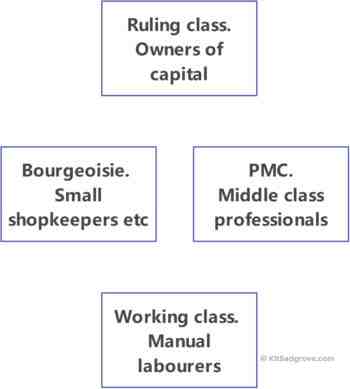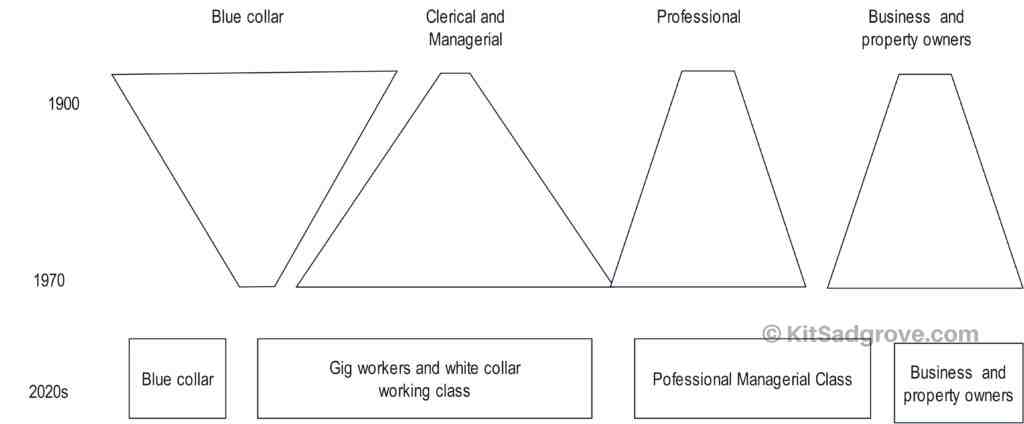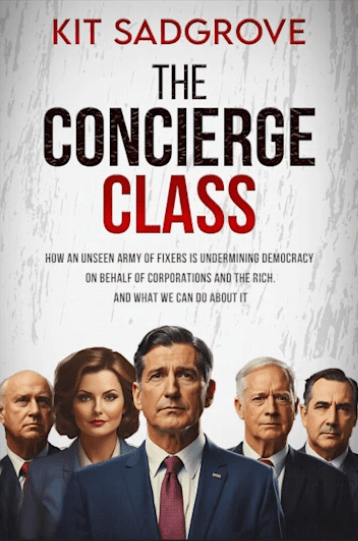Back in the early 1970s, Barbara Ehrenreich was growing up as the daughter of a copper miner who’d risen in society. Her dad had gone to university and ended up as a senior executive for Gillette.
But he hadn’t forgotten his roots. Ehrenreich’s parents had two rules: ‘Never cross a picket line’ and ‘Never vote Republican’. Each day she went to school wondering whether her parents were part of the evil ‘red menace’ they read about in the popular press.
Then as now, the far-left tended to refer to the working class as the group who would deliver revolutionary change. Everyone else, they decided, was the ‘ruling class’ or the ‘bourgeoisie’, united against the heroic blue-collar workers.
But as Ehrenreich grew up, she began to reflect on the educated professionals, the scientists, lawyers, academics and journalists, who historically didn’t work for big corporations.
In the 1930s, these occupations had made up less than 1% of total US employment. But with the advent of the telephone, the car and then electronics, they and the growing administrative class rapidly expanded. By 1972 they’d grown to 24% of all people in work in the USA.
Ehrenreich saw that the new middle class – highly educated and with white-collar professional skills – had taken over key parts of running society in liberal democracies. This included political parties, the media, education and the civil service.
Didn’t this group, which she termed the ‘Professional Managerial Class’ (PMC), have the potential to create a better world? These educated, intelligent, thinking people could surely end up managing society in a humane, liberal way?
After all, they didn’t own the corporations, and they weren’t in the top 1% of earners.

The classes, as Ehrenreich saw it.
Sadly, it didn’t happen. She concluded that the PMC were detached from the needs of the poor. She found they looked down on the working class majority as uncultured and ignorant ( https://www.dissentmagazine.org/online_articles/on-the-origins-of-the-professional-managerial-class-an-interview-with-barbara-ehrenreich/). Through the meetings she attended, she discovered that many of the PMC viewed ordinary people as racist and homophobic.
And that brings us to The Concierge Class. They’re pretty much the same folks as the 1970s PMC.
But today it’s more evident that the Concierge Class spend their time working to support the corporations and the wealthy, albeit unintentionally. Maybe those old-time leftists were right?
As a group, they’re socially liberal, often pushing for political reforms that make the world a more tolerant, diverse and enlightened place. So they’re keen on the idea diversity and education. And they like clean beaches and and pedestrian crossings.
But on the flip side, critics such as Bryce Edwards say they’re self-regarding and uninterested in real change (https://democracyproject.nz/2022/09/08/bryce-edwards-how-politics-got-captured-by-the-middle-class-and-why-its-a-problem/).
Distant members of my family engage in clicktivism. They invite me to sign petitions against live animal exports, environmental damage, and vivisection.
They’re also into ‘self’. They like practising yoga and mindfulness, and learning about Buddhism and ‘kindness’.
But they’re isolated from the real problems of society, and in hard times they have support from parents or savings.
In principle they support the need for justice, equality and social mobility. But they lack any interest in the root problems of inequality, and how that might be resolved.
Traditionally, the political left and its parties sought votes from the working class and the poor, with politicians coming largely from trade union backgrounds and working-class occupations.
But this has been flipped, with parties of the left looking like the professional middle class, and increasingly getting their support from the highly educated.
The left, say its critics, is both liberal and elitist, focusing more on the issues that interest the Concierge Class, rather than seeking political change that might endanger their own economic interests.
Take ESG, for example. Standing for Environmental, Social and Governance, it’s a yardstick that tells shareholders how responsible a company is. The Concierge Class are all in favour of that. What’s not to like? But in truth, it’s something of a smokescreen. It distracts people’s attention from the underlying economic issues. It doesn’t get to the root of why 14 million people in the UK are living in poverty, according to the UK government. That includes 4.2 million children, which is almost one in three (29 per cent) (https://www.bigissue.com/news/social-justice/uk-poverty-the-facts-figures-effects-solutions-cost-living-crisis/).
ESG is a fig leaf that smooths over the image of polluting companies, misleading investors who want to put their money into sustainable enterprises. It does this by aggregating ESG ratings into a single score. Thus an oil company that has implemented good social or governance policies can get a high rating, despite being a polluter (https://www.finance-watch.org/esg-ratings-must-disaggregate-esg-parameters-to-repair-sustainable-investors-trust/).
And what’s more, the ESG numbers are often meaningless. For a couple of decades now, corporations bought ‘offsets’, which meant paying a company to plant trees. This allowed the company to claim it was ‘green’. As we’ll see later, these offsets were found to be worthless.
But back to the Concierge Class. Some say its members a vital asset for the rich and powerful, because they create a political agenda that permits only mild change.
It sides with the Establishment, and focuses mainly on social concerns that are compatible with the status quo, either ignoring or working against the interests of working people.
The middle class is splitting
But changes are taking place in the ranks of the Concierge Class. Due to a lethal combination of outsourcing, technology and the internet, pay and conditions have worsened for many of its members, such as teachers, lecturers and civil servants.
And as the West has de-industrialised, many graduates, especially those without family connections, find themselves unable to get on to the lower rungs of a middle class career, and end up as baristas, shop assistants or call centre workers.
More members of the middle class are falling from their privileged position into a new type of precarious, low-paid labour. It’s for three main reasons:
Outsourcing has been with us for decades, and has led to a race to the bottom in wages, first in low-skill work such as cleaning, and then spreading to the middle classes. Why hire a UK accountant when someone in Bangladesh could do the work for half the price?
The use of freelance ‘gig’ work is now common in IT and the creative professions, and is spreading to accountancy and the law. Many lawyers now work on on of the legal platforms, earning their living on a job-by-job basis. And the rise of AI, like ChatGPT, will begin to reduce lawyers’ salaries as legal knowledge becomes available at the click of a button.
As the cost of buying a house has moved beyond the reach of many, they become reliant on precarious tenancies with private landlords.

Schematic showing the reduction in blue-collar jobs in the West, the increase in the PMC, and its eventual splintering. Not to scale.
Looking back, Barbara Ehrenreich was right to see the potential in the PMC, what we now call the Concierge Class. And later, she was right to be disappointed that it didn’t happen.
She died in 2022. Were she alive today, she’d doubtless see the Concierge Class as the same group as she saw back in 1977, but with added culpability.
What’s to be done?
It’s not enough to write off the Concierge Class as beyond redemption. We need to find ways to engage with them, build their awareness, demonstrate what they need to do, and thus create change.
